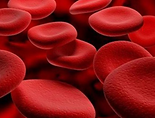
Medical Day Case Unit

Medical day case offers a wide range of treatments and care for many patients within different specialities. we have a unit where we provide car for patients while using a wide range of of treatments. Therefore, we provide a wide range of learning opportunities for student nurses.
Our aims/ philosophy of care.
-
Outpatients care so patients are able to stay well at home and continue to provide admission avoidance.
-
We aim to provide the acts in accordance to the NMC code of conduct buy remaining professional, applying relevant legal regulatory government requirements to practice and applying our skills and knowledge to provide high standards of care to patients.
-
We aim to promote health and prevent ill health using treatment and procedures that we provide and promote/improve health related outcomes by promoting mental, physical and behavioural health.
-
We aim to provide a person-centred approach to our nursing care by applying our knowledge to skills to practice and identify individual needs that patients may have.
-
We aim to act as models in providing evidence based person centred care by having a understanding of our role and responsibilities.
-
We aim to have the ability to undertake risk assessments and identify improvements that can be made to ensure the best care possibly care for patients, how to manage risks and take proactive measures as appropriate.
Learning Opportunities
-
Individualised nursing care
-
Communication skills
-
Bloods transfusion skills
-
Participation in medical procedures & investigations
-
Learning advanced procedures (e.g. faecal transplant, capsule endoscopy)
Ward Number
Contact us : 01246 513577
Matron: Jane Parkin
Ward leader: Sally Chadwick- Sally.chadwick1@nhs.net- 01246516494
LEM: Carley Aston- Carley.aston@nhs.net
01246513577
PICC and Hickman Lines.
we often see oncology, haematology and palliative care patients with PICC(peripherally inserted central catheter) or Hickman Lines in place. we dress, flush and take take blood samples from these using an antiseptic technique.

A PiCC/Hickman line is a long, flexible tube that ends just below the heart. These lines are often used for chemotherapy, blood transfusions and other essential medications that patients need.
Biopsies(lung, Liver and abdomen)
We look after many patients that have biopsies such as lung, liver and abdomen to often
diagnose for cancer. We allow students watch these being carried out. Tissue samples are removed from the area using ultrasound.


Breath Tests
We often have patients that come to Suite 4 for a breath test. This is due to the possibility of having too much bacteria in the gut, which can interfere with digestion. The test is used with lactulose, lactose or glucose and it works by measuring the amount of hydrogen and methane that is breathed in over a three hour period. This could indicate bacterial overgrowth in the small intestine or an intolerance to fructose or lactose. If the test is positive, several medications or antibiotics may be needed to lower acidity levels in the intestines/stomach.
https://www.nhs.uk/conditions/lactose-intolerance/diagnosis/

Immunoglobulins
Patients that come to MDCU for immunoglobulins often need this due to not producing enough antibodies to maintain a healthy immune system or they have an autoimmune disorder. This treatment is produced from human blood. These patients often come to us every few weeks, depending on there treatment plan. This treatment helps those with Guillain-Barre Syndrome, which is a condition that attacks the nerves, causing numbness, weakness and pain.

ERCP’s
We work with the endoscopy team to look after patients that require an ERCP (Endoscopic Retrograde Chlongio-Pancreatography) to remove gallstones from the bile duct, take biopsies and insert/remove stents if needed. An endoscope is used to pass through the mouth into the bile duct opens into the small intestine. We monitor the patients afterwards for symptoms of pain, observations and pancreatitis.

Ascitic Drains
We look after patients that have ascites due to alcoholic or non alcoholic liver disease, liver cancer and palliative care patients. For these patients, the abdomen can become very swollen and distended, which can make them very uncomfortable. Therefore, to relieve these symptoms, a drain is inserted into the abdomen to drain the ascitic fluid.

Venesections
We see many patients that have haemochromatosis – which means they produce too much iron. Hemochromatosis is caused by a faulty gene and this can be passed to other family members. A venesection requires a needle to remove approx. 300-450ml of blood, depending on there weight. Venesections will help to lower the ferritin levels and the patient may have to come to us weekly. When they have gotten to a maintenance level, the patient will come less often (3-4 monthly).

Blood and platelet transfusions
Many of our haematology and oncology patients come often to have a platelet or blood transfusion due to the lack of red blood cells or platelets. Haematology conditions and/or chemotherapy can affect the red blood cells and platelets. This replaces the blood or platelets that have been lost due to chemotherapy or blood cancers such as leukaemia/lymphoma.


Other treatments we provide
-
Monofer/Ferinject infusions
-
Zolendronic acid
-
Infliximab/Vedolizumab/Ustekinamab
-
Injections – Omalizumab/Mepolizumab
-
Short synacthen tests
-
Cannulated prolactin test
-
IV fluids
-
Other Endocrinology tests

Learning Resources
-
Resource packs
-
Staff
-
Specialist equipment instructions
-
Posters / Diagrams
-
Open learning packages/resources
The Medical Day Care Unit is located in Suite 4. The operational hours are as follows:
MDCU Suite 4
Monday – 08.00 – 18.00
Tuesday – 08.00-18:00
Wednesday – 08.00 – 20.00
Thursday – 08:00-18.00
Friday – 08.00 – 18:00